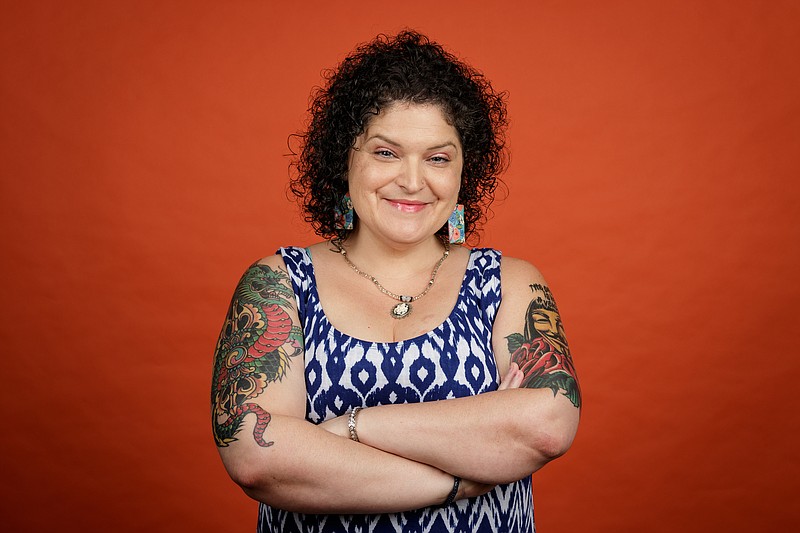As Bela Gaytan sat in a hospital bed at Tennova Healthcare in Cleveland, she had one reoccurring thought to help keep her spirits high.
"Google loves me," she said. "If Google has faith in me and believes in me then how can I expect anybody not to."
The 41-year-old Cleveland, Tenn., resident was diagnosed with multiple sclerosis in March, just a few months after the tech giant offered her one of the 50,000 spots available for aspiring computer programmers in the U.S. to complete in a "challenge course." If Gaytan did well, she could be a part of the top 10 percent who went on to earn a full Nanodegree scholarship from Udacity, an online educational organization, which would help her snag one of the 500,000 open commuting jobs across the country.
With a Nanodegree certification, Gaytan could go on to do what she has always wanted to do – become a front-end web developer. As a single mother and Hispanic woman, breaking into the white, male-dominated field wasn't going to be easy and doing it with an incurable disease threw an untimely curveball.
But she was determined. Just a few days before her last assignment was due, Gaytan sat in her hospital bed and added some final touches. Her job was to make a "pixel art maker," or a drawing program, from basic code that instructors gave her to manipulate.
"I didn't just want to sit there and give into it," she said. "I needed to keep going and it was so important to me. I really felt like I could make it into the second round."
And make it she did. Out of her 50,000 classmates and competitors, Gaytan was one of the 5,000 chosen for the specialized Nanodegree program. Gaytan highlighted her journey in a blog post titled, "What coding from a hospital bed taught me."
Gaytan's relationship with Google is strong now, but at one point, she wanted nothing more than for Google to be wrong. When the entire right side of her body went numb, Gaytan turned to "Professor Google" to look up her symptoms. The one common thing she noticed in all of her searches was "MS."
A trip to the emergency room later, doctors told Gaytan she had 60-80 lesions on her brain. Gaytan was diagnosed with relapsed-remitting MS, which will flare up and then stop at unpredictable times, she said.
Her response?
"It could be worse," she said.
The self-taught coder hopes to work for the likes of Google or Udacity or another major tech company one day. Career website Sokanu estimates the average salary for computer programmers in Tennessee ranges anywhere from $41,000 to more than $100,000. The average yearly salary is $72,000.
The National Center for Education Statistics states that women earned only 18 percent of computer science degrees across the country in 2015 and that percentage is even lower for women of color. A 2016 report from Gallup and Google about the lack of diversity in computer science also found that female, black and hispanic students do not receive learning opportunities in computer science at the same rate as their white and male peers. According to the report, reasons for this include less frequent use of computers at home or in school, not often seeing relatable computer scientists in the media and a lack of encouragement from educators and parents.
Chattanooga's Enterprise Center is trying to change the field at a smaller level by focusing on diversity at the 10-week coding "boot camp" they offer in partnership with Covalence, a Birmingham, Ala., company, according to Enterprise president Ken Hays.
"I think it's great the national companies are encouraging a diverse population, too" Hays said, referring to the Google-Udacity partnership.
Gaytan said the Nanodegree program has a very diverse crowd, and she is just excited to be a part of it. So far, Gaytan's diagnosis has not affected her ability to code, but there are days when the fatigue bothers her or her hand and arm will go numb. She has another mantra she said she likes to remember: "Whatever you believe is what you'll become."
"If I were to believe I have MS and am a victim then I'm not going to achieve much," she said. "But MS is just another adjective to describe me."
Contact staff writer Allison Shirk at ashirk@timesfreepress.com, @Allison_Shirk or 423-757-6651.
